Mozambique: Calls for debate on' health' of Renamo after election losses - Watch
Porous borders allow illegal weapons into Mozambique – AIM report
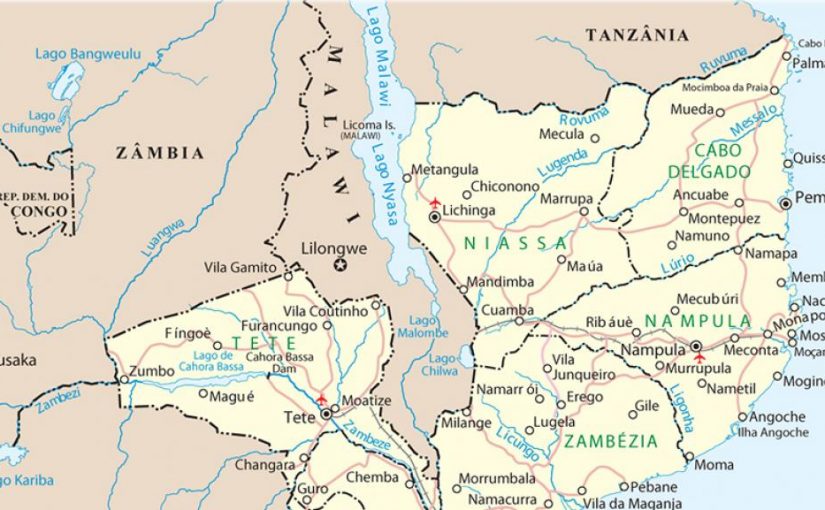
For illustration purposes only. [Map: RM]
Mozambican Defence Minister Jaime Neto admitted on Sunday that the porous nature of Mozambique’s borders allows weapons to enter the country illegally, which are then used by the terrorist groups operating in the northern province of Cabo Delgado.
He was speaking at an extraordinary summit of the African Union held virtually, under the chairmanship of South African President Cyril Ramaphosa.
“Our porous borders facilitate the trafficking in light weapons which are used by criminal, terrorist and extremist groups to perpetrate acts of violence, causing destruction, death and pain in the communities, and preventing the population from benefiting from the dividends of peace, in the shape of jobs, education, health, security and a decent livelihood”, said Neto.
He warned that questions of security deserve immediate intervention, otherwise they may culminate in tragedy.
He told the other AU leaders “Work in favour of peace cannot be delayed, or relegated to a secondary position. Despite improvements in stability in Africa over the last decade, we are continuing to record various forms of violence and armed conflicts”.
Recent estimates, he continued, show that between 2013 and 2017 armed conflicts caused over 27,000 deaths on the continent.
“In my country alone, since 2017 we have recorded about 1,100 deaths associated with armed violence”, said Neto. (It was in October 2017 that the first terrorist attacks by a jihadist group took place in the Cabo Delgado district of Mocimboa da Praia).
The key border in the north is the Rovuma river, separating Mozambique from Tanzania. The governors of the provinces on both banks of the river, Cabo Delgado and Niassa in Mozambique, and Mtwara and Songueia in Tanzania, will now resume annual meetings, which were suspended five years ago.
Speaking on Friday, after receiving the Tanzanian high commissioner, Phaustine Kasike, the Secretary of State for Cabo Delgado, Armindo Ngunga, announced the resumption of the meetings “to consolidate the historic links of brotherhood to unite the two peoples”.
Kasike, who has been high commissioner for about six months, said he had received instructions from his government to resume the meetings between the governors as soon as possible.
This follows the first spillover of the Cabo Delgado conflict into Tanzania. In mid-October a group of about 300 terrorists used the Rovuma to cross into Tanzania and attacked the village of Kitaya, in Mtwara province, where they murdered an unspecified number of people.
A month after this attack, the Mozambican and Tanzanian authorities agreed to launch joint operations against the terrorists linked to the self-styled “Islamic State”. The agreement was signed in Mtwara by the General Commander of the Mozambican police force, Bernadino Rafael, and his Tanzanian counterpart Simon Sirro.
The day before the agreement was signed Sirro told Tanzanian reporters that the police have been rounding up terrorist supporters. “They said they were going to Mozambique”, in order to join the jihadists, Sirro added. “They should stop this insane behaviour. If they don’t stop, they will end up dead or face legal measures”.
Sirro did not say how many had been arrested, but announced that “many Tanzanians, many youths” had been taken into custody.
Rafael told reporters that 516 people would be extradited from Tanzania to Mozambique and tried for crimes committed in Cabo Delgado. This extradition, Rafael said, was a key objective of the agreement he and Sirro had signed.
Those detained include not only Mozambicans and Tanzanians, but also jihadists from Somalia, the Democratic Republic of Congo, Uganda, Rwanda and Burundi. By interrogating these prisoners, said Rafael, the government hopes to understand the motivations of the terrorist organisation.


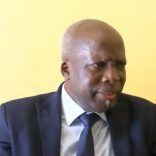
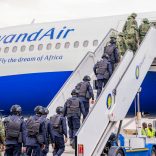
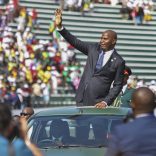

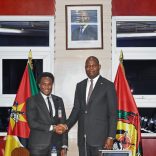






Leave a Reply
Be the First to Comment!
You must be logged in to post a comment.
You must be logged in to post a comment.